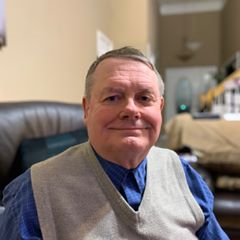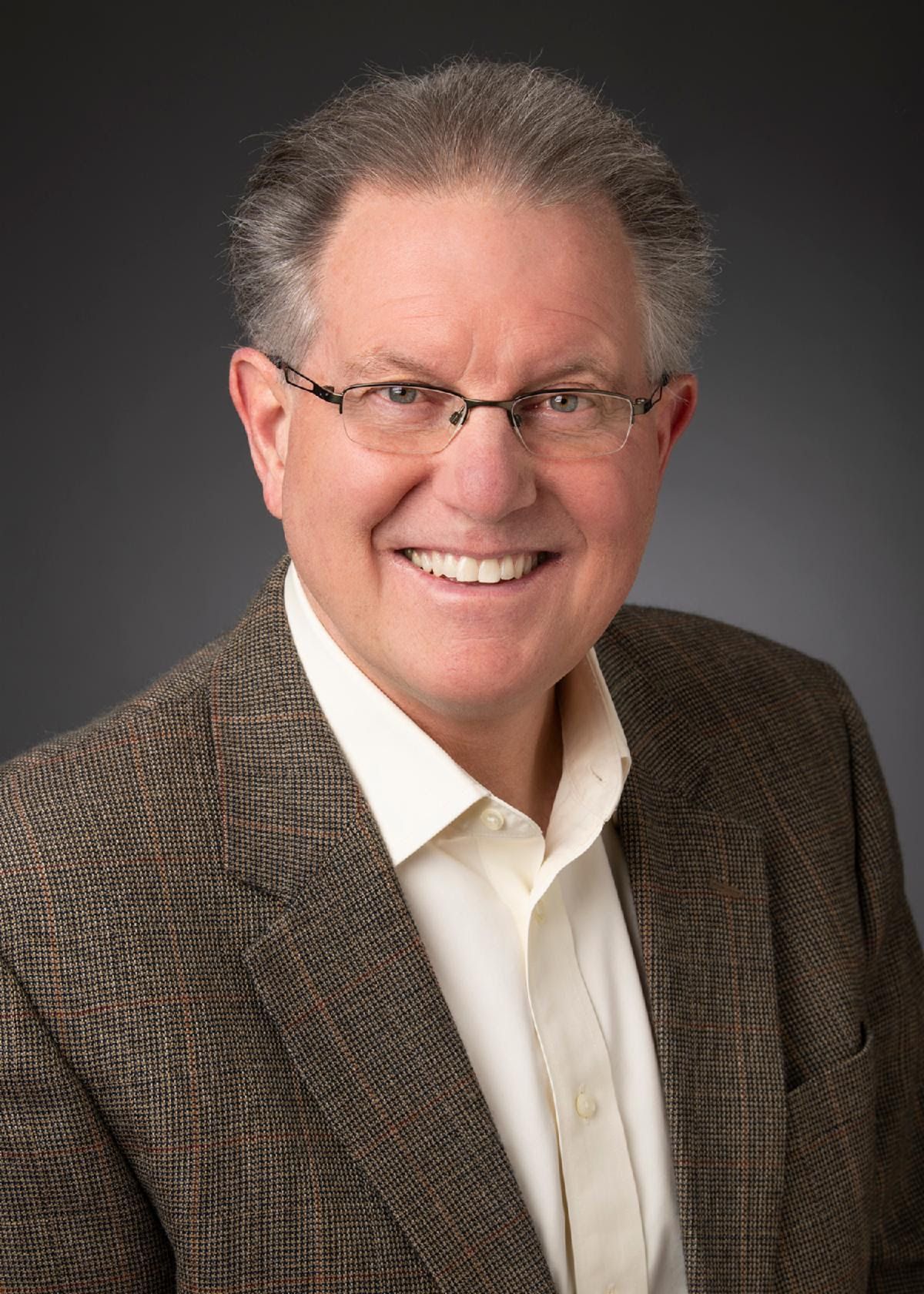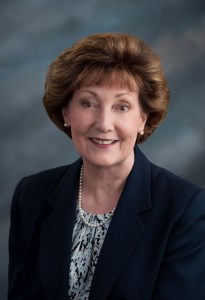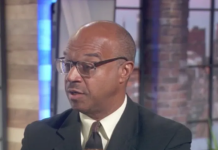By Roxie Hammill
Sunflower State Journal
In so many ways, 2020 has been a year like no other for political campaigning.
Parades, county fairs, cocktail party fundraisers — canceled.
The palm-pressing, baby-kissing, door-knocking staples of years gone by are mostly off the table this year due to the risks of spreading COVID-19, say candidates and organizers from both parties.
“COVID’s changed everything,” said Rep. Nick Hoheisel, the Wichita Republican running for reelection in the 97th House District.
“The whole epidemic has been challenging to Kansans, so we have to work through it as well.”
Generally, that has meant a heavier reliance on digital ways of getting to voters, from
Zoom events to increased emailings.
Some candidates are also turning to more advertising on social media, radio and television, as well as making their literature bigger and glossier.
The result, at least for the primaries, has been a campaign season that is trending a bit
more expensive than in normal years, say the candidates contacted for this story.
Challengers say that has made things more difficult for them.
The door knocking and in-person events — especially fundraising events — are two
traditional campaign methods whose importance both parties agree on.
However, there are a few differences in how Kansas Democrats and Republicans are approaching them.

The state Democratic Party encourages its members to increase digital organizing and
online contact methods.
“With people now at home consuming media at extremely high rates, it makes sense for campaigns to host virtual meet-and-greets, digital organizing days and online fundraising events to engage with supporters from the safety of their own homes,” said party Executive Director Ben Meers.
Many Democrats have responded with Zoom.
Democratic state Senate candidate Wendy Budetti had originally planned a fundraiser at a downtown Kansas City restaurant with friends in the arts community that was scrapped because of the pandemic.
She later turned it into a Zoom event — called Broadway for Budetti — that featured retired Kansas City ballet dancer Christopher Barksdale-Burns and Damron Russel Armstrong, founder of the Black Repertory Theatre.
“It helped us have a strong June and kind of make up for some of our dragging fundraising numbers,” Budetti said. “We had a blast doing it. People are missing live theater and live performances, and this was a substitute for that.”

Joy Koesten, running as a Democrat in Senate District 11, said instead of knocking on doors, she’s holding Tuesday morning policy discussions on Zoom with guest speakers and usually 30-40 people in attendance.
She also has virtual Java with Joy coffees and, before the recent surge in COVID-19 cases, was beginning to digitally connect with small groups of people gathered in their backyards.
“In some ways, it’s expanded our reach. It’s allowed us to reach people maybe we couldn’t have otherwise. It hasn’t been terrible. It’s just been different,” she said.
Rep. Brandon Woodard, the Lenexa Democrat running for reelection in House District 30, also eschews door knocking but has done a Zoom event called Takeout Tuesday, in which participants get takeout from a restaurant before signing onto the meeting app.
As a first-time candidate, Democrat Michael Shimeall of Olathe has had to learn how to campaign as well as how to manage online media.

Shimeall, running for House District 26, had not been on Facebook or social media before this campaign.
Even so, he launched his bid online, featuring his grandkids singing four-part harmony of “Home on the Range.”
It went well, he said, although, “This is the last thing I thought I’d ever do in retirement.”
Rep. Brett Parker, chair of the Kansas House Democratic campaign committee, said efforts to hold virtual events have been creative and varied — from Zoom workouts to trivia nights — as a way of keeping people interested.
“I think it’s anything that just breaks up the monotony of what we’re doing every day for work. Hopping on one more Zoom presentation may not be the most exciting thing,” he said.
Republicans, while also doing the virtual meetings, have been a bit more willing to cautiously try a few in-person events as well, state GOP officials said.
“For the most part, we are seeing things slowly but surely going back to normal,” said Shannon Golden, the party’s executive director.
There are precautions, she said.
Candidates trying to return to door knocking now knock and then step back 6 or 10 feet to make it more comfortable for someone opening the door, for instance.
Republican state Sen. Mike Thompson said he is going door to door as he campaigns for the Senate District 10 seat.
He said he approaches the door, knocks and steps back 6 feet before greeting a potential voter.

“I think that gives people a little more comfort level,” Thompson said. “Some people will talk to you through the door. Some will come out and talk to you face to face.”
Thompson acknowledged that he doesn’t wear a mask while campaigning, saying he suffers from asthma and the heat makes it hard to breathe.
He said he has had a couple instances where would-be voters turned him away without a mask, but he said those are isolated instances.
“Most are happy to come and talk and have a discussion,” he said.
A few voters will ask why he’s not wearing a mask, he said. He said they are accepting when he gets the chance to explain, noting that he’s outside and keeping his distance.
“Most people have been very, very good with all of this,” he said. “We are using extreme caution, letting people know we’re trying to be considerate of their comfort level.”

On the other hand, Republican state Rep. Renee Erickson, who is running for the state Senate, said she’s focusing most of her efforts on dropping literature and making calls right now.
“I am not knocking and talking yet. I want to be respectful of people’s distance,” Erickson said. “I’m just dipping my toe in the water at this point.”
She expects she will adjust after the primary when Democrats nominate their candidate in the Senate District 30 race.
“Without having a primary, I’ve pretty much stuck to the old tried and true,” she said.
She said the voters she has meet have been welcoming.
“I haven’t had one single person contact me and say, ‘I don’t appreciate you coming on my doorstep,'” she said. “I didn’t know when I started if I’d get a lot of pushback.”

GOP party Chairman Mike Kuckelman said some candidates and county parties have had events that offered a socially distanced in-person get-together with a livestream.
And a recent debate in Olathe for 3rd Congressional District candidates was sold out.
“I think people are ready to get back out there, but obviously we want to be careful and do whatever we can for those who don’t feel comfortable,” so many things are still virtual, Golden said.
Not all Republican candidates are knocking on doors.
“I don’t think anybody wants you knocking on their door, so we have not done that,” said Sen. John Skubal, the Overland Park Republican incumbent in Senate District 11.
Skubal does literature drops, mailers, signs and Zoom town halls but said he misses the
door-to-door canvassing that he considers his strong point.
“I really miss the conversations I had with the electorate.”
Republican state Rep. Tom Cox is campaigning door to door. He makes sure to step back 6 to 8 feet after knocking.
He wears a mask but keeps it down so voters can initially see his face. He will cover his face if it’s requested.
“I want them, when I initially walk up, to be able to see my face, then I will traditionally pull my mask over my face after they’ve acknowledged me and seen me,” he said.
The reactions differ, he said.
“I have had people say (they) would be completely offended if you put your mask on, and I’ve had people say they’d be offended if I didn’t,” he said. “It is a completely random hodge-podge of responses.”

Rep. Brenda Dietrich, a Topeka Republican running for Senate District 20, said she hasn’t had much of a Zoom presence but does take literature around, being extra careful that it’s packaged and that she or volunteers don’t touch the door handles.
Dietrich doesn’t knock on doors but keeps a supply of masks in her car just in case they’re needed. She keeps a healthy 6-foot distance from anyone she greets outside.
Dietrich, who has been a state representative since 2017, said she particularly misses parades, where she and volunteers in matching shirts could be seen and talk to a lot of voters.
To make up for that, Dietrich is making full use of signage on her car, plus larger and
glossier mailers. And this year, for the first time, she did a television ad.
Like many other candidates, Dietrich said she is using an array of media to make sure no key demographics are missed by the rush to digital campaigning.
But digital, radio and TV ads plus more mailings can make it more expensive to run a campaign at a time when donors are financially stressed and fundraising is harder.
“There’s no question it’s going to add to the bottom line. We’re just baking that into the
equation,” Koesten said, adding that her campaign is probably 25% more expensive than it might have been in a normal year.
And that extra fundraising can make life more difficult for non-incumbents too, when
local parties have “friendly incumbent” attitudes discouraging primary challenges, said Dietrich, who is running against incumbent Sen. Eric Rucker.
Larry Dreiling, a Hays Democrat running for Senate District 40, expects an uphill battle
because of the demographics of his district.
Dreiling, who does not have a primary opponent, believes he will be outspent by Republican incumbent Sen. Richard Billinger in the general election.
Dreiling feels he has no choice but to try to do more on YouTube, radio and perhaps a
cable television commercial. Door knocking is out of the question, he said, because it would be problematic for the elderly population of the area.
And spotty internet connectivity makes Zoom an unlikely choice.
“We’re still dealing in a few places with dial-up. Seriously,” he said.
Fundraising itself has been transformed by the pandemic. Both parties stayed away from
fundraising during the first weeks of the pandemic last spring because of the uncertainty and the stress.
Since then, Democrats have moved into virtual fundraising events. Woodard’s Takeout
Tuesday was actually a fundraiser, with participants paying for the link.
Virtual fundraising has a positive side, say Woodard and Parker. Asking people to bring
their own dinners eliminates the expense of doughnuts or hors d’oeuvres while supporting local restaurants, for instance.
And some candidates are finding it easier to get big-name guests to online events, Parker said, because the guest can just log on instead of flying to the event.
One event in Lawrence, for example, was able to book former Kansas Gov. Kathleen Sebelius.
“I’m assuming that would have been a nearly impossible get in normal times for a statehouse challenger,” he said.
Fundraising may be more of a challenge this year, but it’s not insurmountable, he said.
Big money raisers might not be possible to re-create on a Zoom call, so candidates will have to work for more small fundraisers instead.
Some Republicans have gravitated toward other ways of raising money.
Skubal said he has spent more time on the telephone instead.
“I’ve always been a people person, so I struggle with trying to do that. I’d rather be face to face with somebody when I ask them for money,” he said.
Meanwhile, the state GOP has increased digital fundraising and mailings statewide,
Golden said.
Since the state fair has been canceled, she said, the party will have to look at other
venues, such as pop-up tents, as a way of raising money through the sale of President Donald Trump merchandise.













